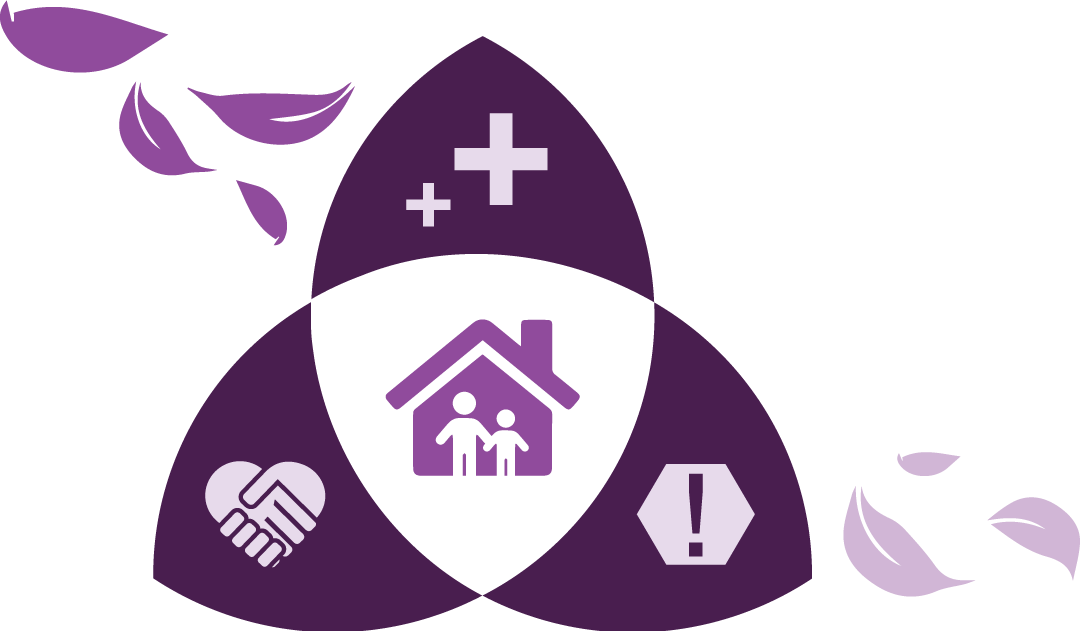Families experiencing AFCCA deserve care, empathy, and a community who understands.
What is AFCCA?
AFCCA refers to Aggression towards Family/Caregivers in Childhood & Adolescence. AFCCA can be a difficult subject to talk about, and parents/caregivers often share they feel shame, stigma, and isolation when they do seek help. Everyone involved—including the youth themselves—is at risk of physical and/or psychological harm, as well as family instability and possible breakdown.
We know that families need understanding, and we offer a welcome, accepting community who are walking similar paths.
AFCCA is defined as:
Aggression toward Family/Caregivers in Childhood & Adolescence (AFCCA) describes a pattern of behaviour in childhood or adolescence, characterized by aggressive behaviour by a child or adolescent toward family members or other caregivers. This causes significant harm (physical and/or psychological) to the child / adolescent, the person(s) the behaviour is directed toward, and other witnessing family members.
AFCCA stems from a common difficulty in which the child struggles to find co-regulation with the adult(s), resulting in progressive challenges with self-regulation. AFCCA is most often directed to parents, primary caregivers, and siblings in the home, but can also be directed toward other caregivers in other settings. The behaviour commonly becomes entrenched and escalates over time.*
Definition via the National Consortium on Aggression toward Family/Caregivers in Childhood & Adolescence (AFCCA).
AFCCA Family Supports Program
Our AFCCA Family Supports Program provides families with access to specialized supports and services that are responsive to your family’s individual needs.
Building on the existing peer supports offered within our Parent2Parent Support Network, the AFCCA Family Supports Program offers additional intensive supports including:
Peer communities and clinical coordination for families with more complex needs.
Clinician-led therapeutic support groups.
On-demand learning, with specialized tools and resources, that promotes awareness and understanding.
Exploring strategies that promote and maintain safety for family members.
Intensive advocacy and navigation assistance with coordinated community referrals.
Getting Started
This program expands on Adopt4Life’s existing Parent2Parent (P2P) Support Network.
Once a parent/caregiver is registered with the P2P peer supports, they are also eligible for additional support under the AFCCA Family Supports Program.
Parents/caregivers can take part in private online communities and support groups for parents/caregivers experiencing AFCCA, and can seek additional support if needed through their Regional Parent Liaison. For families with more intensive needs, our AFCCA Clinical Leads provide advice, guidance, and individualized strategies that promote family safety and stability.
To get started, simply register for the P2P Support Network, and then let our team know that you need help with AFCCA.
AFCCA Family Supports
Clinical Consultation and Coordination
AFCCA Clinical Leads provide advice, guidance, clinical consultation, and coordination to parents/caregivers, leveraging their extensive backgrounds and experience in mental health, trauma, neurodiversity, self-harm, attachment disorders, vicarious trauma, etc. The AFCCA Family Supports Program has been designed to support parents/caregivers who are experiencing AFCCA, and our Clinical Leads have extensive experience across a range of mental health needs and complex behaviour.
What we do
Provide access to safe, private online peer communities and clinician-led support groups
Share strategies and solutions that have worked for other parents / caregivers.
Support you in developing a coordinated plan of care, that meets your family’s needs.
Advocate alongside you, in various community settings.
What we don’t do
Provide 24x7 or live crisis response services (we can proactively help you identify local emergency response services).
Provide 1:1 ongoing therapy, for either parents, caregivers, or family members.
Make recommendations on medications.
Provide respite care.
“This is a very hidden and misunderstood
issue… families often withdraw rather than seeking help. There’s a lot of shame and guilt involved. Families like ours need strong support from professionals who genuinely display unconditional positive regard for each member of the family and who can offer realistic and practical strategies and solutions.”
Additional AFCCA Resources
We have an extensive library of resources, on-demand learning, webinars, and more, to help individuals, families, and professionals understand AFCCA and develop different approaches that may help.
These resources are publicly available to families and professionals everywhere.


